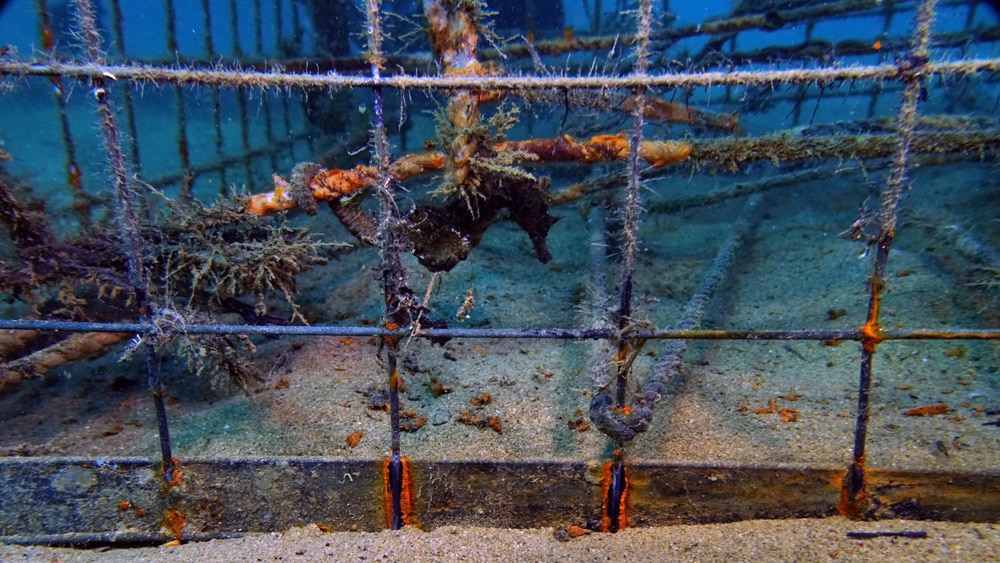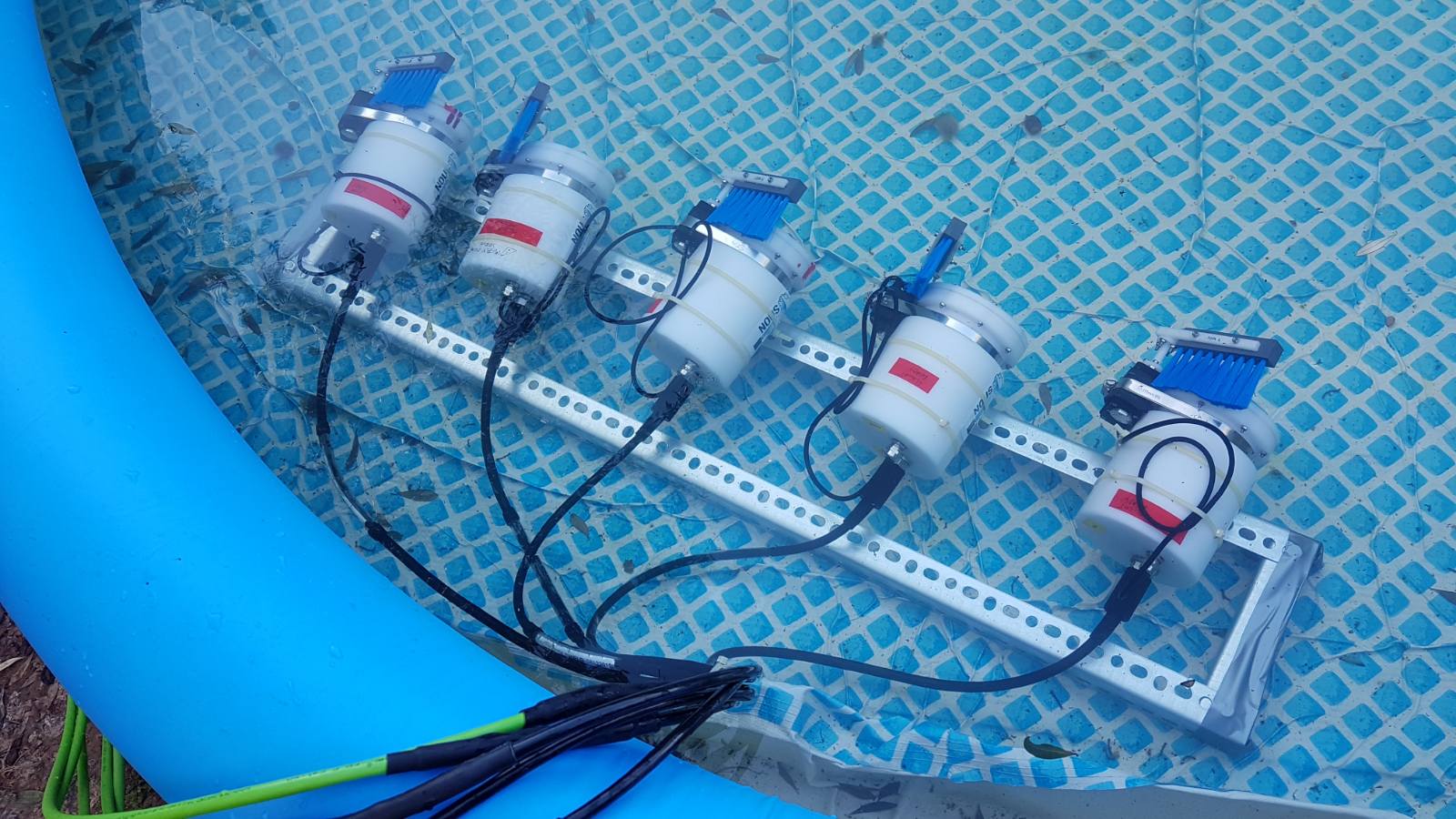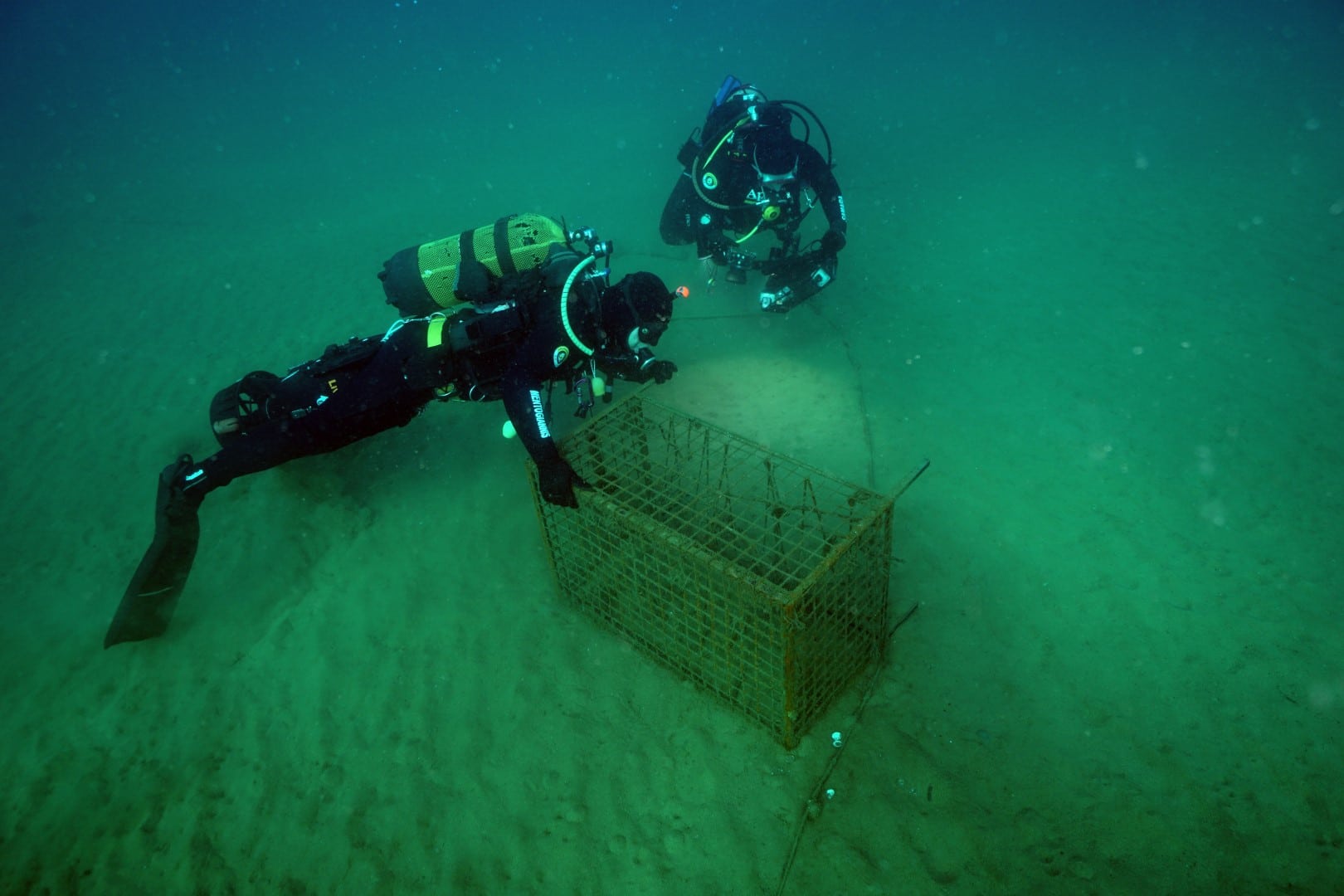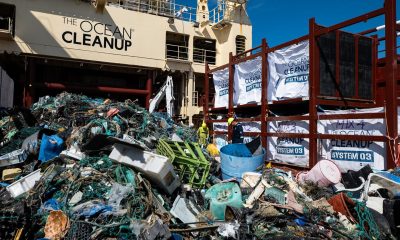Marine Life & Conservation
Saving Seahorses during a Pandemic

Around the world, it’s the same story: divers used to being in the water everyday are finding themselves stuck at home. Programs, training, dive expos, expeditions and underwater research have all been cancelled or postponed. But what about the divers who couldn’t just pack up their bags and wait until the pandemic blew over? We sat down with Vasilis Mentogiannis, founder of the Hippocampus Marine Institute, to hear about ‘prototype housing’, his underwater surveillance project nearly destroyed by the pandemic.
A Diver’s Greek Paradise
Since 2007, Vasilis Mentogiannis has dedicated his professional life to studying seahorses. Fast forward a decade and Vasilis founded the Hippocampus Marine Institute, a non-profit organization whose main focus is the study and protection of seahorses. His work didn’t stop there, however. Up until the days of the COVID-19 outbreak, he had spent his time doing research with a team at a wreck site just off the coast of Peristera Island in Greece. On this particular Greek island, divers are able to examine one of the most important wrecks of the classical era (sometime around 425 BC), as this sunken merchant barge carried more than 3,000 wine amphorae.
A Narrow Escape
It was at this very spot, as Vasilis and his research team were installing their prototype housing system around the amphorae that they received the order to evacuate. When asked further about the project, Vasilis responded that prototype housing is “the installation of an underwater, self-powered system (equipped with solar panels) providing real-time video streaming from five cameras. The housing system is connected to a land station which collects data and statistics regarding the weather, wind speed and direction, rainfall, and UV rays at the wreck site. The ultimate goal is to collect all data necessary to create the technical conditions for breeding seahorses in order to implement their population.”
Today, this area is closed off to divers, and the camera system is able to both live-stream the wreck site from underwater for anyone to see online as well as provide surveillance, keeping the location safe from any such divers thinking they might like to make off with an amphora or two. Unfortunately, the global pandemic brought Vasilis’ work to a screeching halt. “When the virus made its way to Greece, we were still performing the system installation. It was really difficult because we had to stop all our activities and return to Athens.” Vasilis goes on to explain the potential danger of leaving a project like this so abruptly and unfinished, “If we had left the system as it was, it would have been destroyed as soon as the next bout of bad weather hit.”
Luckily, Vasilis and his team were able to finish the installation in time as well as apply a few key protective measures. “It was a really stressful situation. The day after we left the site, the weather got bad. I imagine if we hadn’t stayed to secure it, it would have been destroyed by now.” The potential losses were enormous, Mentogiannis continues, including a 200-meter power cable and fiber optic cable, an underwater hub, solar panels, batteries, etc.
Vasilis credits the company Divesoft for the role it played in providing the much-needed equipment that made such a time-critical project possible. The reliable Freedom computers came in when Vasilis was feeling the pressure to complete the installation. With the help of a good team and the right dive gear, Vasilis was able to complete the project in time, making his prototype housing system a success.
Prototype Housing’s Next Application
Now, Vasilis is waiting at home, hoping the outbreak will come to an end as soon as possible. His intentions are to prepare his prototype housing “seahorse cage-hotels” for surveying and protecting the Stratoni seahorse colony (also located in Greece, just north of the Peristera Island wreck). “The same system will be tested in Stratoni, but with a different task. The main goal will be to recognize the seahorses and provide as much feedback and information as possible,” explains Vasilis. “One of our first systems is about 90% ready, but we haven’t been able to test it as the virus closed all of us off at home.”
Hope for the Future
We’re looking forward to the day to come in which Vasilis, his team, as well as the rest of us, can return to the water. At times like these, we have to keep positive and try to focus on the good. Vasilis is more than satisfied that they were able to finish their installation work and save their project in Greece. Now he, like so many of us, is just itching to get back to his prototype housing projects, and is especially looking forward to seeing the seahorses again. Coronavirus may have succeeded at slowing Vasilis and his team down, but the fight’s not over yet. A priority to preserve and safeguard the remaining seahorse population in the area remains.
For more information about the Hippocampus Marine Institute visit their website by clicking here.
Blogs
The Ocean Cleanup Breaks 10,000,000 KG Barrier

The Ocean Cleanup, the global non-profit project, has removed a verified all-time total of ten million kilograms (22 million lbs.) of trash from oceans and rivers around the world – approximately the same weight as the Eiffel Tower.
To complete its mission of ridding the oceans of plastic, The Ocean Cleanup uses a dual strategy: cleaning up the Great Pacific Garbage Patch (GPGP) to remove the plastic already afloat in the oceans, while stopping the flow of plastic from the world’s most polluting rivers.
Through cleaning operations in the GPGP and in rivers in eight countries, the cumulative total of trash removed has now surpassed ten million kilograms. This milestone demonstrates the acceleration of The Ocean Cleanup’s impact, while underlining the astonishing scale of the plastic pollution problem and the need for continued support and action.
While encouraging for the mission, this milestone is only a staging point: millions more tons of plastic still pollute our oceans and The Ocean Cleanup intends to continue learning, improving and innovating to solve this global catastrophe.
This announcement comes as governments from around the world meet to continue negotiations to develop a new legally binding instrument to end plastic pollution at INC4 in Ottawa, Canada. Representatives of The Ocean Cleanup will be in attendance and the organization will be urging decision-makers to collaborate towards a comprehensive and ambitious global treaty which addresses plastic at all stages of its life cycle and in all marine environments worldwide, including in areas beyond national jurisdiction.
It is encouraging to see that the need for remediation is reflected in the various options for potential treaty provisions. It is essential that the final treaty contains clear targets for the remediation of legacy plastic pollution, and reduction of riverine plastic emissions.
Tackling plastic pollution requires innovative and impactful solutions. The treaty should therefore incentivize the innovation ecosystem by fostering innovations that make maximal use of data, technology and scientific knowledge – such as those designed and deployed by The Ocean Cleanup.
‘After many tough years of trial and error, it’s amazing to see our work is starting to pay off – and I am proud of the team who has brought us to this point.’ said Boyan Slat, Founder and CEO of The Ocean Cleanup. ‘While we still have a long way to go, our recent successes fill us with renewed confidence that the oceans can be cleaned.’
The Ocean Cleanup was founded in 2013 and captured its first plastic in 2019, with the first confirmed catch in the GPGP coming soon after the deployment of Interceptor 001 in Jakarta, Indonesia. After surpassing one million kilograms of trash removed in early 2022, the non-profit project has since progressed to the third iteration of its GPGP cleaning solution, known as System 03, and a network of Interceptors currently covering rivers in eight countries, with more deployments set for 2024.
About The Ocean Cleanup
The Ocean Cleanup is an international non-profit organization that develops and scales technologies to rid the world’s oceans of plastic. They aim to achieve this goal through a dual strategy: stemming the inflow via rivers and cleaning up the legacy plastic that has already accumulated in the ocean. For the latter, The Ocean Cleanup develops large-scale systems to efficiently concentrate the plastic for periodic removal. This plastic is tracked and traced through DNV’s chain of custody model to certify claims of origin when recycling it into new products. To curb the tide via rivers, The Ocean Cleanup has developed Interceptor™ solutions to halt and extract riverine plastic before it reaches the ocean. Founded in 2013 by Boyan Slat, The Ocean Cleanup now employs a broadly multi-disciplined team of approximately 140. The foundation is headquartered in Rotterdam, the Netherlands.
For more information, visit: theoceancleanup.com and follow @theoceancleanup on social media.
Marine Life & Conservation
Steve Backshall to headline Shark Trust’s flagship event: For the Love of Sharks

Join a host of amazing, shark loving, speakers including Steve Backshall and the Shark Trust team for an evening celebrating shark conservation at the Royal Geographical Society in London this November.
Date: 29th November 2024
Time: 6-10pm
Location: Royal Geographical Society, London
Tickets: https://www.sharktrust.org/Event/flos24
The event will be a celebration of all things shark. Those lucky enough to get hold of tickets will hear from engaging guest speakers with a passion for sharks.
The line-up includes (*subject to change if unforeseen circumstances arise)
Steve Backshall: One of television’s busiest presenters, BAFTA award-winning wildlife expert Steve has been passionate about the wild world ever since he was young.
Steve’s impressive TV career has taken him all around the world, investigating a wide array of species and environments. Steve has filmed over 100 hours of children’s wildlife programmes with the BAFTA award winning Deadly 60 franchise and recently, with Sky Nature, for his new series ‘Whale with Steve Backshall’. He has been a patron for the Shark Trust for 10 years.
Simon Rogerson: is a photojournalist specialising in natural history, diving and the sea.
He is editor of SCUBA magazine, the official journal of the British Sub-Aqua Club. Simon started his career as a crime reporter but gravitated towards his ‘less depressing’ interest in underwater exploration, joining the staff of DIVE magazine in 1999. In 2005 he was named ‘Editor of the Year’ in the PPA’s Independent Publishing Awards. Simon also works as a freelance writer, contributing frequently to the Sunday Times and Telegraph, in addition to BBC Wildlife, Esquire, and a host of international diving magazines. He is the author of a book, Dive Red Sea, published by Ultimate Sports. Now based in Berkshire, Simon has been a Patron of the Shark Trust for 20 years.
More speakers to be announced soon. Head to the Shark Trust website to learn more.
The evening will also allow guests the final chance to see the Oceanic 31, shark art exhibition. Some of the artwork will be auctioned/raffled at the event, while the rest will be auctioned online to raise money for the Shark Trust Oceanic Programme.
For the Love of Sharks is an evening with something for everyone who is interested and fascinated by sharks. Join the Shark Trust, their Patrons, Trustees and Staff, along with a host of supporters for this celebration of shark conservation.
For more information or to buy a ticket: https://www.sharktrust.org/Event/flos24
-

 News3 months ago
News3 months agoCapturing Critters in Lembeh Underwater Photography Workshop 2024: Event Roundup
-

 Marine Life & Conservation Blogs3 months ago
Marine Life & Conservation Blogs3 months agoCreature Feature: Swell Sharks
-

 Blogs2 months ago
Blogs2 months agoMurex Resorts: Passport to Paradise!
-

 Gear Reviews4 weeks ago
Gear Reviews4 weeks agoGEAR REVIEW – Revolutionising Diving Comfort: The Sharkskin T2 Chillproof Suit
-

 Blogs3 months ago
Blogs3 months agoDiver Discovering Whale Skeletons Beneath Ice Judged World’s Best Underwater Photograph
-

 News3 months ago
News3 months agoPADI Teams Up with Wellness Brand Neuro to Drive Ocean Change and Create a Blue State of Mind
-

 Gear Reviews3 months ago
Gear Reviews3 months agoGear Review: Oceanic+ Dive Housing for iPhone
-

 News3 months ago
News3 months agoWorld’s Best Underwater Photographers Unveil Breathtaking Images at World Shootout 2023



















